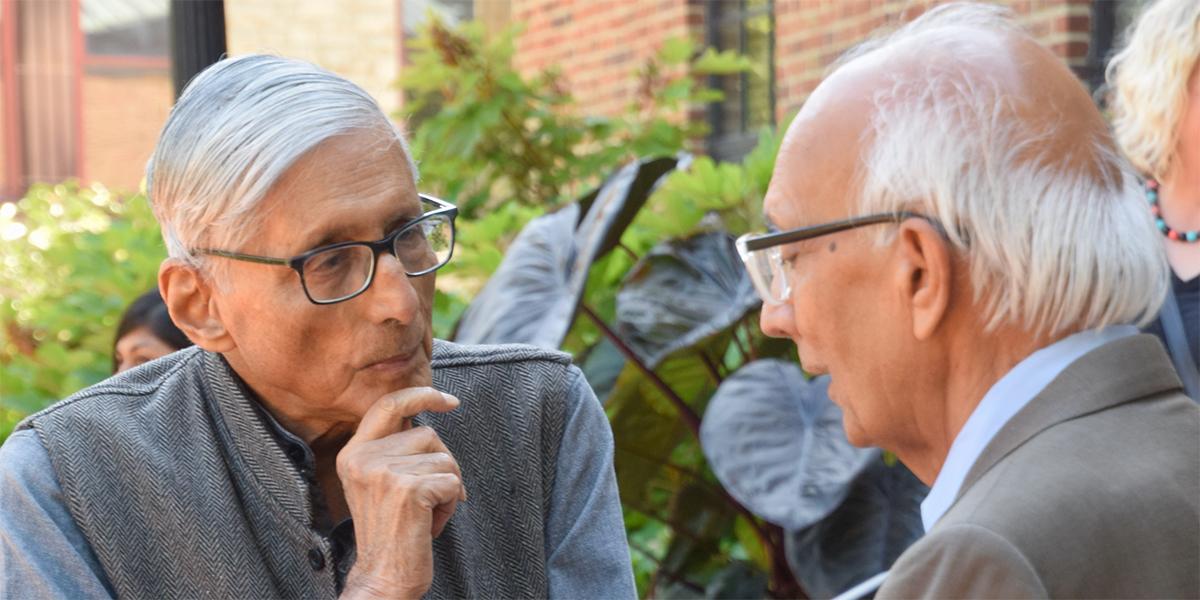Rajmohan Gandhi, the grandson of Mahatma Gandhi, has dedicated his life’s work to preserving his grandfather’s legacy of nonviolence and reconciliation. A historian, biographer and human rights activist, Gandhi shared his insight with the Ohio State community on September 7 when he delivered two lectures. His talks focused on the 1947 partition of India and the critical message of peaceful resolution left by one of the world’s best known political and spiritual leaders.
His reflections and analysis of the partition of India and its aftermath noted how personal the conflict was to millions of people. The partition divided British-ruled India into two new, independent nations: India and Pakistan. Gandhi shared views and historical references about the division of boundaries along religious lines – Hindu and Muslim – and the two-nation theory. The partition ended nearly two centuries of British rule, sparked violence, led to the largest mass migration in history, and continues to cause conflict between India and Pakistan today.
Gandhi’s keynote lecture focused on Mahatma Gandhi’s life, his core messages and major critics. His remarks ranged from the analytical to the deeply personal as he recalled his grandfather’s efforts to define and embody the principles of satyagraha, or principled non-violent resistance. Gandhi traced the impact of his grandfather’s legacy across the remainder of the 20th century, noting the influence that his example had on activists like Dr. Martin Luther King, Jr., who advocated for peaceful approaches during the civil rights movement.
The two lectures were coordinated by the Office of International Affairs and the Gandhi Memorial Society.
